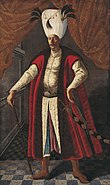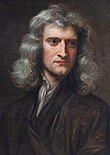1642
Appearance
This article needs additional citations for verification. (January 2016) |
| Millennium: | 2nd millennium |
|---|---|
| Centuries: | |
| Decades: | |
| Years: |
| 1642 by topic |
|---|
| Arts and science |
| Leaders |
| Birth and death categories |
| Births – Deaths |
| Establishments and disestablishments categories |
| Establishments – Disestablishments |
| Works category |
| Gregorian calendar | 1642 MDCXLII |
| Ab urbe condita | 2395 |
| Armenian calendar | 1091 ԹՎ ՌՂԱ |
| Assyrian calendar | 6392 |
| Balinese saka calendar | 1563–1564 |
| Bengali calendar | 1049 |
| Berber calendar | 2592 |
| English Regnal year | 17 Cha. 1 – 18 Cha. 1 |
| Buddhist calendar | 2186 |
| Burmese calendar | 1004 |
| Byzantine calendar | 7150–7151 |
| Chinese calendar | 辛巳年 (Metal Snake) 4339 or 4132 — to — 壬午年 (Water Horse) 4340 or 4133 |
| Coptic calendar | 1358–1359 |
| Discordian calendar | 2808 |
| Ethiopian calendar | 1634–1635 |
| Hebrew calendar | 5402–5403 |
| Hindu calendars | |
| - Vikram Samvat | 1698–1699 |
| - Shaka Samvat | 1563–1564 |
| - Kali Yuga | 4742–4743 |
| Holocene calendar | 11642 |
| Igbo calendar | 642–643 |
| Iranian calendar | 1020–1021 |
| Islamic calendar | 1051–1052 |
| Japanese calendar | Kan'ei 19 (寛永19年) |
| Javanese calendar | 1563–1564 |
| Julian calendar | Gregorian minus 10 days |
| Korean calendar | 3975 |
| Minguo calendar | 270 before ROC 民前270年 |
| Nanakshahi calendar | 174 |
| Thai solar calendar | 2184–2185 |
| Tibetan calendar | 阴金蛇年 (female Iron-Snake) 1768 or 1387 or 615 — to — 阳水马年 (male Water-Horse) 1769 or 1388 or 616 |
1642 (MDCXLII) was a common year starting on Wednesday of the Gregorian calendar and a common year starting on Saturday of the Julian calendar, the 1642nd year of the Common Era (CE) and Anno Domini (AD) designations, the 642nd year of the 2nd millennium, the 42nd year of the 17th century, and the 3rd year of the 1640s decade. As of the start of 1642, the Gregorian calendar was 10 days ahead of the Julian calendar, which remained in localized use until 1923.
Events
January–June
- January 4 – First English Civil War: Charles I attempts to arrest 6 leading members of the Long Parliament, but they escape.
- March 1 – Georgeana, Massachusetts (now known as York, Maine) becomes the first incorporated city in America.
- March 19 – The citizens of Galway seize an English naval ship, close the town gates and declare support for Confederate Ireland.
- May 1 honours granted by Charles I from this date onward are retrospectively annulled by Parliament.
July–December
- July – First English Civil War: Charles I besieges Hull in an attempt to gain control of its arsenal.
- August 4 – Lord Forbes relieves Forthill and besieges Galway.
- August 21 – First Battle of Lostwithiel.
- August 22 – King Charles I raises the royal battle standard over Nottingham Castle, so declaring war on his own Parliament.
- September 2 – Parliament orders the theatres of London closed, effectively ending the era of English Renaissance theatre.
- September 7 – Lord Forbes raises his unsuccessful siege of Galway.
- September 8 – Thomas Granger is executed by hanging at Plymouth, Massachusetts for confessing to numerous acts of bestiality.[1]
- October 23 – First English Civil War – Battle of Edgehill: Royalists and Parliamentarians battle to a draw.
- November 13 – First English Civil War – Battle of Turnham Green: The Royalist forces withdraw in face of the Parliamentarian army and fail to take London.
- November 24 – Abel Tasman becomes the first European to discover the island Van Diemen's Land (later renamed Tasmania).

- December 13 – Abel Tasman is the first recorded European to sight New Zealand.
Date unknown
- The Dutch drive Spain from Taiwan.
- The village of Bro (Broo) in Sweden is granted the city rights for the second time and takes the name Kristinehamn (literally "Christina's port") after the then Swedish monarch, Queen Christina.

- Rembrandt finishes his painting "The Night Watch".
- The Manchu under their leader Huang Taiji raid the Ming Chinese province of Shandong from their base in Manchuria. Two years later Beijing falls to rebels, the Chongzhen Emperor commits suicide, and the Shunzhi Emperor becomes the first Qing Emperor to rule over China proper.
- Kaifeng flood of 1642: Some 300,000 people die when the Ming dynasty army in China intentionally breaks the dams and dykes of the Yellow River to break the siege by the large rebel force of Li Zicheng.
- Isaac Aboab da Fonseca is appointed rabbi in Pernambuco, Brazil, thus becoming the first rabbi of the Americas.
Births




January–March
- January 2
- Johannes van Haensbergen, Dutch Golden Age painter (d. 1705)
- Mehmed IV, Sultan of the Ottoman Empire from 1648 to 1687 (d. 1693)
- January 3 – Diego Morcillo Rubio de Auñón, Catholic bishop (d. 1730)
- January 4 – Philippe Pierson, Jesuit missionary (d. 1688)
- January 5 – Johann Philipp Jeningen, German Roman Catholic priest from Eichstätt in Bavaria (d. 1704)
- January 6
- Julien Garnier, French Jesuit missionary to Canada (d. 1730)
- Gisbert Steenwick, Dutch musician (d. 1679)
- January 11
- Johann Friedrich Alberti, German composer and organist (d. 1710)
- Mary Carleton, Englishwoman who used false identities (d. 1673)
- January 26 – Evert Collier, Dutch Golden Age painter (d. 1708)
- February 3 – Philip Aranda, Spanish Jesuit theologian (d. 1695)
- February 18 – Marie Champmeslé, French actress (d. 1698)
- March 2 – Claudio Coello, Spanish Baroque painter (d. 1693)
- March 4 – Stanisław Herakliusz Lubomirski, Polish noble (d. 1702)
- March 25 – Anna Talbot, Countess of Shrewsbury, English countess (d. 1702)
- March 28 – Henry Wolrad, Count of Waldeck-Eisenberg (1645–1664) (d. 1664)
- March 29 – Emich Christian of Leiningen-Dagsburg, Lord of Broich, Oberstein and Bürgel (d. 1702)
- March 31 – Ephraim Curtis, military officer (d. 1684)
April–June
- April 15 – Suleiman II, Ottoman Sultan (d. 1691)
- April 21 – Simon de la Loubère, French diplomat (d. 1729)
- April 27 – Francisque Millet, painter (d. 1679)
- April 30 – Christian Weise, Writer, dramatist, poet, pedagogue and librarian (d. 1708)
- May 5 – James Tyrrell, English barrister and writer (d. 1718)
- June 8 – Frescheville Holles, Members of the Parliament of England (d. 1672)
- June 12 – Alexander Seton, 3rd Earl of Dunfermline, Earl in the Peerage of Scotland (d. 1677)
- June 13 – Queen Myeongseong, Korean royal consort (d. 1684)
- June 18 – Paul Tallement the Younger, French writer (d. 1712)
- June 20 – George Hickes, English minister and scholar (d. 1715)
- June 28 – Jacob de Graeff, member of the De Graeff-family from the Dutch Golden Age (d. 1690)
July–September
- July 3 – Joseph-François Hertel de la Fresnière, military officer of New France (d. 1722)
- July 7 – Gregorio II Boncompagni, Italian nobleman and the 5th Duke of Sora (d. 1707)
- July 25 – Louis I, Prince of Monaco, Monegasque prince (d. 1701)
- August 3 – Robert Austen, English politician (d. 1696)
- August 14 – Cosimo III de' Medici, Grand Duke of Tuscany (d. 1723)
- September 1 – Angelo Paoli, Italian beatified (d. 1720)
- September 6 – Georg Christoph Bach, German composer (d. 1697)
- September 23 – Giovanni Maria Bononcini, Italian violinist and composer (d. 1678)
October–December
- October 12 – Abraham van Calraet, Dutch painter (d. 1722)
- November 4 – Zheng Jing, Chinese pirate (d. 1681)
- November 5 – Nils Gyldenstolpe, Swedish count, official and diplomat (d. 1709)
- November 9 – Sir John Lowther, 2nd Baronet, of Whitehaven, English politician (d. 1706)
- November 11 – André Charles Boulle, French cabinet-maker (d. 1732)
- November 16 – Cornelis Evertsen the Youngest, Dutch admiral (d. 1706)
- November 24 – Anne Hilarion de Tourville, French naval commander under King Louis XIV (d. 1701)
- November 30 – Andrea Pozzo, Jesuit Brother, architect and painter (d. 1709)
- December 6
- Johann Christoph Bach, German composer and organist (d. 1703)
- Gerard Callenburgh, Dutch admiral (d. 1722)
- December 8 – Nicolas Roland, French priest and founder (d. 1678)
- December 13 – Friedrich Seyler, Swiss theologian (d. 1708)
- December 17
- Francisco Castillo Fajardo, Marquis of Villadarias, Spanish general (d. 1716)
- Francis de Geronimo (d. 1716)
- December 23 – John Holt, English politician (d. 1710)
- December 25 – Isaac Newton, English scientist (d. 1727)
- December 30
- Vincenzo da Filicaja, Italian poet (d. 1707)
- François Roger de Gaignières (d. 1715)
- date unknown
- John Archdale, British colonial governor (d. 1717)
- Abdul-Qādir Bīdel, Persian Sufi poet (d. 1720)
- Bonaventure Giffard, English Catholic priest (d. 1734)
- Josep Romaguera, Catalan author (d. 1723)
- Albert Janse Ryckman, Mayor of Albany, Prominent Brewermaster (d. 1737)
- Edward Taylor, American poet (d. 1729)
Deaths

- January 8 – Galileo Galilei, Italian astronomer and physicist (b. 1564)
- February 7 – William Bedell, English clergyman (b. 1571)
- April 30 – Dmitry Pozharsky, Russian prince (b. 1578)
- July 3 – Marie de' Medici, queen of Henry IV of France (b. 1573)
- August 18 – Guido Reni, Italian painter (b. 1575)
- September 3 – Elisabeth of Nassau, regent of Sedan (b. 1577)
- September 12 – Henri Coiffier de Ruzé, Marquis of Cinq-Mars, French conspirator (b. 1620)
- September 29 – René Goupil, the first of the Canadian Martyrs (b. 1608)
- October 24 – Robert Bertie, 1st Earl of Lindsey Fen drainage adventurer and soldier (b. 1583)
- November 1 – Jean Nicolet, French explorer (b. 1598)
- November 7 – Henry Montagu, 1st Earl of Manchester, English politician (b. c. 1563)
- December 4 – Armand Jean du Plessis, Cardinal Richelieu, French statesman (b. 1585)
- date unknown
- Eudemus I of Georgia, Catholicos Patriarch of Georgia
- Franz von Hatzfeld, Prince-Bishop of Würzburg (b. 1596)
- Walatta Petros, saint in the Ethiopian Orthodox Tewahedo Church (b. 1592)
References
- ^ Samaha, Joel. "2". Criminal Law (Ninth ed.). Belmont, CA: Thomson/Wadsworth. p. 60. ISBN 0-495-09539-7.
